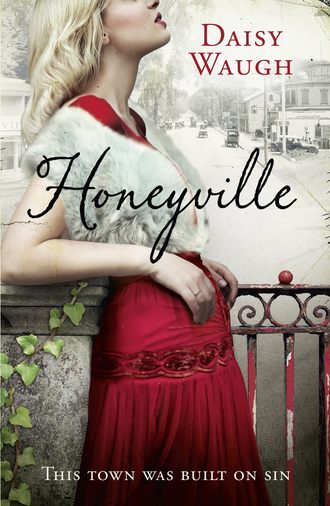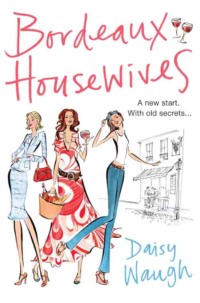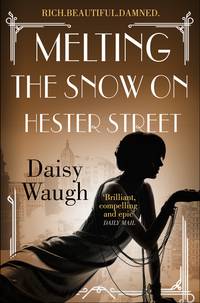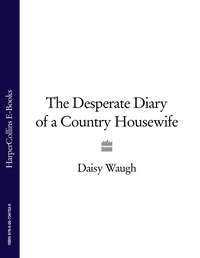
Полная версия
Honeyville
‘Well you could begin,’ I said, ‘by asking my name.’
She opened her mouth—
‘And maybe even hushing up long enough to find out the answer.’
4
She discovered my name eventually. Though I’m not convinced she really registered it until some time later. I told her a little about myself – as little as I could – and watched her wide eyes watering, torn between outrage and pity.
‘You don’t need to feel sorry for me,’ I said, when her pitying expression was too much.
‘Oh but I don’t,’ she cried quickly, eyes sliding away.
‘After all, I am freer than most women and freer than any wife. I have money of my own. A wife doesn’t.’
‘Yes of course!’
‘A husband can beat and rape his wife and there is nothing she can do to prevent it. If a man beats me or rapes me, it is against the law. And even if it weren’t, here in Trinidad, we girls have friends who can make his life a misery. I have freedom. And one day,’ I told her, ‘when I have saved enough, I can stop this work altogether. And do what I have always planned to do—’
‘Yes?’ Inez asked, brightening. ‘Yes, and what is it?’
In truth the ‘plan’, if I could even call it such a thing, was no closer to fruition than it had been the first day I’d dreamed it up, seven or so years ago. I regretted mentioning it, and felt aggrieved with myself for having done so. But she wouldn’t let it go. She demanded to know what it was, my secret plan: what I might otherwise do that would save my wicked soul. I told her. I was a singer once.
Instant tears sprung. ‘A singer!Why, and you can be again!’ she cried. ‘You could sing at our own opera house! I just bet you could! You’re so dashing and beautiful and everything … I’ll ask Mr Haussman. He’s the manager. He’s quite an acquaintance of my uncle. I just bet you—’
‘But I don’t want to sing at the damn opera house,’ I snapped.
‘Well, of course you do!’
‘I am sick and tired of people looking at me—’
‘Even so …’
‘However, I admit it – I would love to teach others to sing.’
‘Well then!’ Inez was irrepressible: ‘You could start today! What’s stopping you?’
‘Plenty of things.’
‘Well? Name them!’
But I didn’t want to. I didn’t want to talk about my dreams. I didn’t need to be saved by her. ‘I don’t want to start today. I enjoy myself,’ I said. Or at any rate (I didn’t add), I used to. But a girl can have too much of a thing. ‘I earn good money. And I never have to cook or clean – or listen to any man bellyaching … or at any rate not for long. And then,’ I leaned in and winked, ‘well, they lay down their dollars. And then they fuck off. Out of my bed, out of my room. Out of my life.’
She gasped, as I had intended.
‘Better a whore than a wife,’ I said. ‘Any day.’
Inez was neither of course. She was a lady with a rich and indulgent aunt, who volunteered her time at the library. Inez could do whatever and go wherever she liked. It made my head spin to imagine it.
She was ‘looking for love’, she told me. (I could have told her to save herself the trouble.) Instead we spent much of the evening talking about that. Inez and her search for love. Her search for adventure. Her search for a bigger life. She was restless.
‘Aunt Philippa has almost despaired of me,’ Inez said with a hint of pride. ‘She’s utterly convinced I’m going to die an old maid. And I tell her – well of course I shan’t!But you know, Dora, I do begin to wonder myself sometimes. I know I look younger than I am. People always say I do. But I’m going to be thirty next birthday – it’s old. For a lady. Don’t you think?’ She glanced at me. ‘I mean to say – you probably … Maybe you—’
‘Oh, I already have a husband,’ I muttered. I hadn’t intended to confide in her. Certainly not. But there it was: the effect of her warmth, surprising me, inviting me to reciprocate. I had no close confidantes, and didn’t want any. But she was difficult to resist.
‘You do?’
‘Somewhere. I haven’t laid eyes on him in seven years or so. But I certainly had a husband. Until I woke up one morning … And there – he was gone!’ I looked at her astonished face, eyes filling with sorrow yet again, and I burst out laughing. ‘Inez,’ I declared – and I think by then I had almost come to believe it. ‘It was the best morning of my life!’
‘But why? Did he? Was he—’
‘A louse. He ran off with our savings.’
‘No! And … children?’ she asked, tentatively. ‘What happened to the—’
‘No children.’
‘Oh. Well. I guess that’s something.’
A silence fell.
‘Well!’ Inez filled it, bless her. ‘It looks like I won’t be troubled by any little rug rats of my own either. The rate I’m going. And it’s not like I’ve been starved of suitors. Believe me, Dora. Just about every halfway eligible gentleman in Colorado has thrown his hat in the ring.’
‘I’ll bet.’
‘Everyone in town knows I’m wealthy. Rather, they know my Uncle Richard is wealthy. And they know my aunt will be sure to make Uncle Richard make me wealthy too, the day I become a bride. It’s what Aunt Philippa goes around telling everyone.’
‘You probably have gentleman queuing round the block.’
‘Well – yes. That is, I did. I’ve lost count of the gentlemen I’ve refused. And it’s not that I’m fussy.’
‘Of course not!’
‘It’s just that the gentlemen in this town … I don’t like to be insulting. And I guess – well, maybe you see a different side of them.’
‘I guess I probably do.’
‘But they’re so darned dull with me! All they seem to talk about is business. Who made how many dollars buying this or that piece of real estate. And then they talk about hunting. Which is all very well, except I’m not interested. And then they talk about their automobiles. I spend half an hour with them and I’m already thinking to myself, well you’re such a dull fish – why, I’d far prefer to spend the rest of my life with my nose buried inside a novel than to have to spend another ten minutes listening to you.’
I laughed.
She looked at me curiously. ‘If it’s not too silly to ask,’ she said, ‘do they talk about their automobiles with you?’
Just then the door to the street burst open. Two men, brawny bodies buttoned tight under high woollen waistcoats, necks sweating in collar and tie, strode into the room with such purpose and energy that everyone in the saloon, half full by then, paused in their conversation to inspect them. The two men seemed oblivious to the attention, didn’t glance from left to right, but marched directly to the bar. They looked grim, of course. And on the shirtsleeve of the man closest, I could see a smear of blood. Lippiatt’s blood. I knew it was Lippiatt’s – rather, I suspected it, because I recognized the men as having accompanied Lippiatt on his visit to Plum Street all those weeks ago. We – that is, the three men, a couple of the girls and I – had shared a few drinks, whiled away an hour or so in the ballroom before dispersing to our separate bedrooms. I wondered if they would recognize me.
I hoped so. I hoped that they would spot me and come across. They were at the centre of it all this evening, and I was curious to know what had happened since we saw Lippiatt’s body being dragged away down the street.
‘Dora!’ Inez whispered so loudly, my name echoed off the wooden floors. ‘He has blood in his sleeve! Do you suppose—?’
‘Hush!’ I said.
But he had already turned. They both had. They looked us up and down. We made an incongruous pair. The man without blood on his sleeve looked at me more closely. He turned to the other, muttered something … Yes, the other one nodded. Yes, indeed. It was me. The hooker from Plum Street. Both men raised a hand.
‘What? Do they know you?’ asked Inez, aghast. ‘Those terrifying-looking gentlemen?’
I wasn’t sure how to answer. It happened I couldn’t remember either of their names. And, until they chose to acknowledge me, I was duty bound – honour bound – to deny it anyway.
‘Dora!’ shouted the dark one.
And so it was decided.
They picked up their glasses and crossed the room towards us. ‘A sight for sore eyes,’ he said. ‘May we join you? Are you working tonight?’ They glanced at Inez, uncertain where she quite fitted in.
‘Working?’ Inez cried out. ‘Does she look like she is working? She most certainly is not working. Thank you very much …’ She studied them more closely, through whiskey-glazed eyes, and seemed to like what she saw. ‘However,’ she added, looking pointedly at the blonder one, the man with the blood on his shirt, ‘whatever your names may be, if you would like to sit yourselves down here …’ She missed the seat, patted the air around it and then seemed to lose her nerve. She glanced at me.
If I had sent the men away, how different things would be today! I didn’t do that. The excitement on her face – and the blood on his sleeve, and heck, they were two attractive men, and we were unaccompanied and a little drunk. I nodded, inviting the two of them to join us.
As they pulled up their chairs, Inez muttered something soft and briefly sobering about, ‘Aunt Philippa being worried.’ I could have called a halt to it then, I suppose. Or she could. She could have said to the men – ‘I really ought to be going.’ I might have walked with her to her home, since by then she was already canned, and certainly not able to make the journey alone. But I was canned too. I was off duty. I was having a good time. I don’t believe the thought even crossed my mind. ‘You said yourself you wanted to meet some new men,’ I whispered, and winked at her.
She swayed with laughter. ‘Oh, you’re shocking!’ she said gleefully. ‘I am in too deep now, for sure!’
Lawrence O’Neill was the taller, blonder, handsomer of the two, and the one with blood on his sleeve. He was an Irishman from Missouri; an activist, employed by the UMWA (United Mine Workers of America) to do his worst in Trinidad. Back then, of course, before the Great War and the revolution in Russia, the battle between labour and capital was mustering strength and fury in every corner of the globe. It happened that, for the time being, the UMWA had designated Trinidad its American centre. It was here, among the mines of Colorado, that the Union was concentrating its funds, its fight – and all its best people. Lawrence O’Neill from Missouri was among them, he told us. And, yes, it was Captain Lippiatt’s blood on his sleeve.
We were all where we shouldn’t have been that night. I should have been working, of course. Inez should have been at home with her aunt, playing bezique. And, on the night their friend was murdered, you would have thought those two Union men had better things to do than while away the hours with a small-town librarian and a tired old girl like me.
‘Tell me, Inez Dubois,’ Lawrence O’Neill leaned his body in towards her, his expression teasing.
‘Tell you what, Lawrence O’Neill?’ she purred back at him … A little bit of confidence and polish – the thought flipped through my mind – and she might have made a fine hooker herself. ‘What shall I tell you, Lawrence O’Neill? I’ll tell you anything you want to hear.’
‘Inez, honey,’ I interrupted half-heartedly. ‘Don’t you think we ought to be heading home?’
‘What’s that, Auntie?’ she said.
It made me laugh. ‘Just take it easy, won’t you?’ I muttered. These men aren’t like the ones who talk to you about automobiles. That’s what I should have told her.The blood on their sleeves isn’t something they smeared on for after-dinner party games.
Lawrence wanted to talk about the company-owned mining camps, or ‘company towns’, as we sometimes called them. And they were towns, really: privately owned fiefdoms, fenced off from the rest of America. They had their own stores, doctors’ surgeries, chapels and schools; their own set of rules (no hookers, no liquor allowed); even their own currency: miners’ wages were paid partially in scrip, only valid in the company town’s overpriced stores. Lawrence asked her if she’d ever visited a company town herself.
Of course she’d never visited. For that matter, neither had I.
‘I never have,’ she said bluntly. ‘But my aunt goes out to the little schoolroom at Cokedale every Friday, to help them with religious instruction. Or she used to. Before it all became so troublesome out there.’
‘It’s going to get worse now,’ he said. ‘Lippiatt changes things. You watch. It’s going to turn, now.’ He said it with a grim sort of relish. His friend nodded sagely – and I remember I felt a grim sort of chill. He was right. You could smell it – the turning point. The cold-blooded murder of a Unionist, right there, on North Commercial Street. Lippiatt’s death would change everything.
But Inez didn’t seem to be listening. She prattled on without missing a beat. ‘Aunt Philippa says it was quite the nicest little school building she’s ever visited, and far nicer than St Teresa’s here in town, which by the way I attended … And she says the company provides the sweetest little homes for the workers that are as cosy as can be. And each little family has its own little yard. And plenty of people grow their own vegetables and keep chickens and I don’t know what else. And I know what you are going to say. You are going to say that it’s perfectly all right for Aunt Philippa, who arrives at Cokedale in her motorcar and leaves again in a motorcar and goes home to a lovely house with two great furnaces and servants and honeycake for breakfast and all that – Well, I’m not saying anything about that …’
He laughed – rather gently, I thought, all things considered.
‘Aunt Philippa says she simply doesn’t know what the workers are complaining of.’
‘Well,’ he said, ‘I’m going to drive you out there, Miss Inez. How about that? I’m going to drive you out there tomorrow and you can see for yourself … The numbers of men who roam about the place with half their limbs missing. Because of just how nice and cosy it is down there in those coalmines. And the women who have to beg and borrow just to feed their own children. You think the company cares for its people? They don’t give a damn for the people. They own the people. And, by the way – if they cared so much about their damn people, perhaps you can explain to me why they send their Baldwin-Felts thugs to murder them, in cold blood, right here on the sidewalk in front of everyone.’
‘You’re getting the wind behind you, Lawrence,’ I interrupted. ‘Watch out now, or you’ll blow us all the way home.’
‘And excuse me for saying,’ Inez said, taken aback by his vehemence but – to her credit – not silenced by it, ‘with respect and all: Captain Lippiatt wasn’t employed by the company. He wasn’t one of their people. That is … He was quite the opposite.’
‘He was for the miners,’ O’Neill replied.
‘Oh god,’ I sighed. ‘I think it’s time for my bed.’ I’d spent too many hours of my life, listening to men windbagging about the rights and the wrongs of organizing unions, and the rights and wrongs of company towns – and I was sick and tired of the whole subject. If you asked me – but nobody ever did. I wouldn’t have told them anyway. It was none of my business.
Inez didn’t share my feelings. That much was clear. She was leaning towards Lawrence, preparing to continue the argument, when an elderly gentleman in a worn wool suit approached the table.
‘Miss Inez?’ he said.
She looked up at him. Her face fell. ‘Oh no,’ she moaned. ‘Not now. Please, Mr Browning. Can’t you just pretend you didn’t see me?’ She belched. ‘I’m just about getting started.’
‘I’ve been looking for you here, there and everywhere,’ he said. ‘Your uncle’s waiting outside in the automobile. If you don’t come out directly, I dare say he’ll come in and haul you out by your ears.’ The old man glanced around the table: two Union men, one blood spattered – and one old hooker: drunk as lords, every one of us …’I think you had better come with me.’
With a great, childlike sigh, she set down her glass and stood up.
‘What?’ cried O’Neill. ‘You’re running off? Just as it was getting interesting?’
‘Well, you can see that I have to.’ They looked at each other, and I swear – whatever was going to happen between them was sealed, right there and then. ‘But it was fun, wasn’t it?’ she said. ‘Can we do it again?’
‘Come to the Union offices. You know where they are?’
‘Not exactly.’
‘Well – see if you can’t find out. Ask for me.’ He smiled at her, a liquor-leery smile, and I don’t believe he was thinking much about the iniquities of company towns just then. ‘I’ll be around the next few days, Miss Inez Dubois. Maybe we’ll motor out to the Forbes camp together …’
She was about to leave, but she turned back. ‘And I haven’t forgotten, Dora,’ she said, waggling a single, dainty finger. ‘I’ve not forgotten about the singing lessons, you know.’ For a second I couldn’t even think what she was talking about. ‘Thank you for a beautiful evening.’
‘I enjoyed it,’ I said.
‘It started badly though, didn’t it?’ she said vaguely. ‘Lawrence O’Neill, I am very sorry about your friend.’
‘Aye,’ he said solemnly. ‘Thank you.’
‘Well. I had better leave. Thank you all. Dora, thank you …’ She was swaying, possibly on the verge of tears again. The old man attempted to take her elbow, but she pulled it away. ‘It was the best night of my life.’
She weaved her way through the long bar, the old man protective and irritable beside her. She was a fish out of water. A fish that had swallowed far too much sauce … I see her now, reeling meekly beside the old man. There were snickers and catcalls from either side, and of course she must have heard them. She must have known what a figure she cut. And yet, there was something beyond pride, something grand and oblivious as she made her way through the room. She looked happy and alive – and carefree, and bold and young. And she reminded me of what it was like to be someone who still believed – oh, I don’t know – that life could ever be more than a thing to be gotten through.
Lawrence O’Neill, I think, watched her leave and was filled with a different sort of regret.
It was a private transaction between the two of us – strictly against Plum Street Parlour House rules. I went upstairs with him, to his rooms at the Toltec, and woke before dawn in a state of shock. I had slept with a client still beside me. I took the cash from his wallet, and left without saying goodbye.
5
I looked out for her, but I didn’t see Inez for some time after. I often wondered how her aunt had reacted when she’d rolled home that night, reeking of liquor, and I took great pleasure in trying to imagine the ride back from the Toltec, Inez and her Uncle Richard side by side, Inez belching away, jabbering about politics. That she didn’t appear at the Union offices (which fact I learned from Lawrence O’Neill when I met him on the street a week or so later) seemed to illustrate that our evening together was nothing more than an amusing deviation for her.
Inez had melted back into her parallel world of educational talks and pious ladies’ tea parties, and I pitied her for it. To my surprise, I also missed her. I considered seeking her out at the library, and once even made it as far as the library steps. But when I glimpsed her at the desk, sober and prim, gossiping with the doctor’s wife, I lost my nerve and turned back home again. I suspected that, were we to meet at the stocking counter of Jamieson’s Department Store one day (as well we might), she would not even acknowledge me.
Meanwhile, as O’Neill had predicted, Lippiatt’s murder was the talk of the town, and the talk of our visitors to Plum Street. Tempers on both sides of the argument were hot and high, and there was no meeting point between them. Only a few months earlier, up in Colorado Springs, so one of my clients informed me, Lippiatt had been found guilty of unspeakable violence against some poor young woman, and there had been moves to excommunicate him from the Union altogether. Now, of course, it was a different story. His death became a focal point. He had died a Union martyr. At the Union conference that weekend, Lawrence O’Neill and his pals wore black crepe bows on their shoulders in remembrance of his heroism. But they hadn’t watched him, as I had, returning to the fray with his handgun. They hadn’t heard the bloodlust in his shout as he waved his weapon at the two detectives … Any more than they had watched the two detectives, standing side by side over his dying body, and shooting him again – tearing a hole through his throat and then his chest.
But I had been living at Plum Street seven years by then, and I’d learned when to share my opinion and when to keep it to myself. So I kept my mouth shut. They were all fools to me.
The Plum Street Parlour House was situated in an imposing, four-storey red-brick house, which stood apart from the lesser buildings on either side of it. It was handsome: there were steps leading to the front door, and before it was a porch with ornate wrought-iron banisters. There was an electric light, set in a three-foot-high candle carved in stone by the side of the door and, on the door, a vast and shiny brass knocker. Everything about the place offered up the same message: the smell of perfume and burning opium that seemed to leak from the bricks, the shine and splendour of our brass knocker, those flamboyant railings, the rich red and gold drapes at the windows, the sparkling chandeliers within – not even a child could have been in any doubt as to the building’s function. There were other brothels, even on our street, and in handsome houses too. But ours stood out. It glowed with lubricious promise. We were the most exclusive whorehouse in town, and those of us who lived and worked in it took a certain amount of pride in the fact.
There were eight of us working girls living at Plum Street back then. In addition we had Simple Kitty greeting at the front of house, two more housemaids, two kitchen maids, a cook and a barman, a musical director, who played piano in the main parlour and organized musicians for the ballroom each night. There was also Carlos, the man-of-all-work. And overlooking us all with her beady eye and the tightest pocketbook in Colorado, there was Phoebe: once a working girl herself, now Madam to the most popular parlour house in Trinidad. Unlike me, she had learned early on how to keep hold of her money and get the hell out of the game.
Phoebe must have been among the wealthiest individuals in town, but there was never a time when she wasn’t on the lookout to be making more for herself. Any chance for another buck, Phoebe would be onto it. She’d developed a hundred sly ways to cheat the johns so that they wouldn’t feel it, or didn’t care. She used to cheat us girls too, charging interest on debts we’d run up here and there. In the early years, I hadn’t used to mind so much. I was grateful for such a comfortable place to live. But more recently my attitude had changed. After so many years on my back, splitting my earnings with Phoebe and having nothing whatsoever to show for them, I had been trying, at last, to get myself in hand. I had eased up on the laudanum. Eased up on the liquor too. And I was beginning to keep some of my money back.
One of the girls must have told Phoebe I was trying to get myself together, and she didn’t like it one bit. At thirty-seven years old, I wasn’t the youngest girl in the house, and maybe I wasn’t the prettiest either, but I knew what I was doing. I pulled in more than my fair share of business and Phoebe wasn’t ready to lose me.
The morning they shot Lippiatt she had presented me with an unpaid receipt from a dressmaker who’d been dead for two years. Maybe it was genuine – I had been drinking a lot two years before then, and the laudanum would have been playing its part. In any case, I had no way to check up on it. Even if I had, there wasn’t much I could have done about it. Phoebe held the town in her pocket. If she decided I owed her – well then, I owed her. For all its comforts and luxuries, Plum Street was a jail of sorts. Leaving it was never going to be a simple business …








